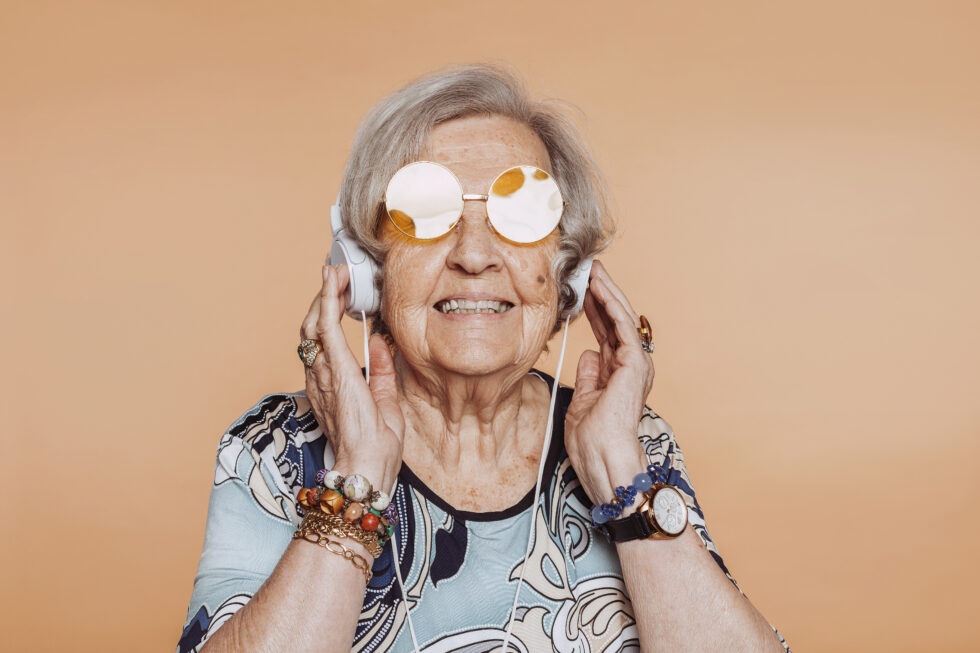While the study of how to treat Alzheimer’s disease is an ongoing process, there have been major breakthroughs in recent years in how to help adults afflicted with Alzheimer’s feel more joy and peace in their lives. One of the most significant of these breakthroughs is the very promising results observed in music therapy.
So let’s quickly dive into what Alzheimer’s really is, how it affects the mind, and how you can use music to bring more happiness into the life of someone who suffers from this tragic disease.
What exactly is Alzheimer’s disease?
Dementia is an umbrella term that’s used for a lot of different symptoms of mental decline that get in the way of a person living a full life. Usually these include memory problems, difficulty communicating, and difficulty thinking (cognitive impairment).
Alzheimer’s disease is the most common type of dementia. The symptoms of Alzheimer’s usually begin slowly and get worse as time goes on. Because of its slow onset, it can be difficult to recognize at first, and friends or family members may think that their loved one is having an “off day” or “just getting old.” Dementia and Alzheimer’s, however, are not normal parts of aging, and proper care is absolutely essential for anyone who suffers from these conditions.
Is Alzheimer’s a problem I need to worry about?
As the baby boomer generation is reaching their 60s, 70s, and beyond, the senior population in the U.S. is growing rapidly. Over 11% of adults 45 and older have subjective cognitive decline and, of those, around 120,000 adults aged 65 and over are living with Alzheimer’s in Washington State alone.
So, while you do not need to worry, you absolutely should get educated and prepared to help America’s seniors as they encounter dementia, Alzheimer’s, or the other challenges that come with aging.
What do I need to know if someone I love has Alzheimer’s?
If you’re someone who has a friend or family member showing signs of Alzheimer’s, there are two things you need to know.
First, you are not alone! In Washington alone, over 300,000 family caregivers are caring for a loved one with Alzheimer’s. This means that many, many people are in the same place as you are: doing their very best to help, but without medical training or experience. At the same time, MyAFH is here to provide you the support, resources, and guidance you need as you walk through this very difficult time. We’re in this together!
Second, there is hope! There are a lot of things that can be done to slow down cognitive decline and improve quality of life for seniors with Alzheimer’s disease. Research has shown that treating behavioral symptoms can make people with Alzheimer’s feel more comfortable and makes things easier for their caregivers.
How can music help someone with Alzheimer’s?
For seniors with Alzheimer’s, listening to music can be incredibly beneficial. A study conducted by researchers at the University of Miami School of Medicine found that music therapy increased the levels of feel-good brain chemicals in patients with Alzheimer’s, which lead to improved mood, reduced stress, and relief from agitation.
The progression of Alzheimer’s does not affect the brain’s natural response to music. This means that music has the powerful ability to evoke memories and emotions unlike anything else. Including in those with dementia, the brain begins to recall people, places, sounds, and even smells associated with their past experiences related to what they’re listening to.
When someone with Alzheimer’s begins reacting to a song, this is a wonderful opportunity! Use this time to engage in conversation with them and encourage them to talk about their memories and feelings. Doing this can be a healing and heartwarming experience, both for them and for you.
How can I learn more?
For more information like this, follow us on YouTube and Facebook!
We’re always creating more content to help support people just like you. In fact, you tell us what you’d like to know more about and we’ll add it to our upcoming content releases. And, as always, please reach out to us directly if there’s any way we can help you.





